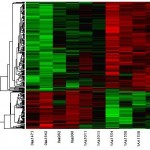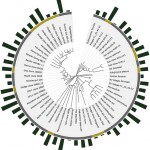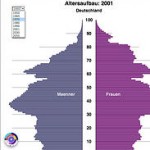Research Interests
Currently, the main research goals of the group focus on to elucidating how evolution, and particularly natural selection, has shaped genome and phenotype diversity in our lineage. To this end, we combine experiments, models and data analysis. Some specific research lines are as follows
1. Chromosomal evolution and speciation
 We study how large chromosomal rearrangements affect many aspects of genome structure and evolution, including how they may drive the generation of new species.
We study how large chromosomal rearrangements affect many aspects of genome structure and evolution, including how they may drive the generation of new species.2. Segmental duplications and copy-number variation in primates
 The genomes of humans and other primates show an enrichment in Segmental Duplications (SDs) with high sequence identity, plus they present may Copy-Number Variants (CNVs), large genome fragments of which different individuals present different copies. SDs and CNVs are fundamental for the creation of novel genes and may have been key in the evolution of our lineage. We study not only the frequencies and genome locations of these variants, but also the molecular evolution of their sequence content.
The genomes of humans and other primates show an enrichment in Segmental Duplications (SDs) with high sequence identity, plus they present may Copy-Number Variants (CNVs), large genome fragments of which different individuals present different copies. SDs and CNVs are fundamental for the creation of novel genes and may have been key in the evolution of our lineage. We study not only the frequencies and genome locations of these variants, but also the molecular evolution of their sequence content.3. Detecting the genomic signature of natural selection
 We try to detect the signature of adaptive changes out of single-copy protein-coding regions. We focus in how natural selection may have shaped variability patterns in introns and regulatory regions of genes.
We try to detect the signature of adaptive changes out of single-copy protein-coding regions. We focus in how natural selection may have shaped variability patterns in introns and regulatory regions of genes.4. Human disease and its evolutionary implications
 We study world-wide patterns of disease susceptibility distribution to ascertain how these may have been influenced by recent human evolution. In addition, we investigate the possible origins of Multiple Sclerosis and its possible relationship with very recent natural selection events in humans.
We study world-wide patterns of disease susceptibility distribution to ascertain how these may have been influenced by recent human evolution. In addition, we investigate the possible origins of Multiple Sclerosis and its possible relationship with very recent natural selection events in humans.5. Genoeconomics
 Complex human traits that are exclusive of our lineage are the basis of our societies and have huge socio-economic impact. We deploy the latest tools of genomics for the dissection of human economic traits.
Complex human traits that are exclusive of our lineage are the basis of our societies and have huge socio-economic impact. We deploy the latest tools of genomics for the dissection of human economic traits.